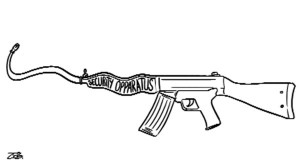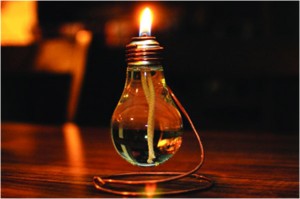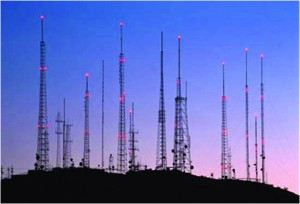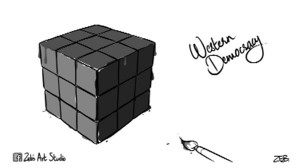
Democracy for Pakistan?

Sir,
Ships sailing from the coast of America in the 18th century would make their way with haste to European ports to offload their fresh agricultural produce. Whole cities were born from the wealth of these commodities, including Liverpool and Manchester, which later contributed to the industrial heartland of the colonial British Empire. However, the return journey to the acclaimed new found land was rather different. The ships first set sail, loaded with finished European products, to Western Africa, where they traded their cargo for a rather different ‘commodity’, to be acquired and taken back to the United States. As with the incoming stock, this was just as susceptible to damage, deterioration and disease, and as a result was just as liable to be thrown overboard and discarded by the crew into the sea without a second thought. However, the goods in question earned as much if not more profit than crops, finished products or livestock. The merchandise in question was human beings… human beings needed to work the vast plantations as slaves.
And so this trade network, known as the golden triangle, flourished and grew into the then equivalent of a ‘billion dollar industry’. Black Africans, many of who were Muslims, were rounded up in large numbers from their homeland and dragged away like animals into a life of slavery to work to the bone on plantations for white Americans, who had only just concluded an equally traumatic ethnic genocide against native American Indians. In total, in more than two centuries, around 20 million Africans were captured and sold into slavery. A comparable 15 million or so indigenous American Indians were wiped out, and with them, their culture and civilisation that had existed for centuries before.
Most modern day multinational giants can trace their roots to these early exploits, such as British American Tobacco (BAT), which today owns most of Pakistan Tobacco. The industrial revolution itself, the backbone of the capitalist world and its claim to fame, would not have been possible without slave trade. Today, capitalism continues to rule the roost, with the majority of Western nations being leaps and bounds ahead of the developing world, which encompasses almost all of Africa, South America and a majority of the Muslim world.
Despite the recent shocks and tremors, capitalism continues to hold strong as the Western countries that champion the ideology consist of populations who largely still yield to the ideology’s theoretical ideals and principles, and along with these the stipulated mode of ruling through democracy. When the prevalent ruling mechanism is in sync with public opinion, this then generates progression for that society, as a majority of people are committed to the state and its causes.
So even though capitalism currently dominates the world and is applied by most developed nations, this does not necessitate that it is the correct ideology to follow. Due to the nature of its democratic ruling system, capitalism the world over has consistently ensured that only a criminal, vested interest band of individuals grasp and maintain the reigns of power. As a result, it has produced massive inequality of wealth distribution throughout the world, going hand in hand with overt and covert colonialist policies, by first the Europeans and now by the United States.
So this is how the West has in reality accumulated its vast riches over the last few centuries – not through the application of supposed noble democratic values, but through brutal force and suppression. So the question arises for the Muslim world, in particular Pakistan, who a few days ago celebrated the International Day of Democracy, is this really the path that should be chosen to attain elevation from the quagmire we find ourselves in?
Asif Salahuddin,
Lahore.
MDGs failure
Sir,
At the end of the 20th century, the United Nations signed eight Millennium Development Goals (MDGs) with almost all countries of the world in a bid to reduce hunger and poverty, and improve education, health and nutrition across the globe. For fifteen years, the global community and national governments have worked extensively in an effort to end poverty and hunger, eliminate inequalities, improve education, reduce child and maternal mortality, stem the tide of environmental degradation, reduce the rise of diseases and forge global partnerships. After almost 15 years since the signing of the MDGs, the world is now facing its worst ever migration crisis due to wars in Syria, Libya, Iraq and other countries; most of the conflict zones are Muslim nations. Fifteen years have passed, and one has to recognise that the world has achieved some good results (the developed world achieved most of the targets), but most the underdeveloped and developing countries missed their targets.
The sad fact is that the UN has not properly focused on underdeveloped and developing countries, which would explain why they’ve missed their targets. Today, the world is less safe when compared to the pre-MDG period. Thousands of people have been completely displaced, resulting in an increase in poverty and disease. Around 2 million people are living on the roads and are sleeping under the open sky without food and medicine. Around 1 billion people in the world are living in abject poverty, while millions of children miss schools every day. Clearly, the UN has failed the people of the world, primarily due to misplaced priorities and actions.
According to the 2015 MDG report, the goals’ most important failure is that inequalities persist and progress around the world has been uneven and unjustified. The world’s poor remain overwhelmingly concentrated in some parts of the world, like China, India, Pakistan, Bangladesh and Afghanistan. In 2011, nearly 60 per cent of the world’s one billion poor people lived in just five countries. Too many women continue to die during pregnancy or from childbirth-related complications. Progress tends to bypass women and those who are lowest on the economic ladder or are disadvantaged because of their age, disability or ethnicity. In 85 per cent of the 92 countries with data on unemployment rates by level of education for the years 2012–2013, women with advanced education had higher rates of unemployment than men with similar levels of education.
Despite continuous progress, the world still has far to go towards equal gender representation in private and public decision-making. In rural areas, only 56 per cent of births are attended by skilled health personnel, as compared to 87 per cent in urban areas. About 16 per cent of the rural population does not use improved drinking water sources, compared to 4 per cent of urban population. About 50 per cent of people living in rural areas lack improved sanitation facilities, compared to only 18 per cent of people in urban areas. Every day, 42,000 people on average are forcibly displaced and compelled to seek protection due to conflicts, almost four times the 11,000 reported in 2010.
Children accounted for half of the global refugee population under the responsibility of the United Nations High Commissioner for Refugees in 2014. In countries affected by conflict, the proportion of out-of-school children increased from 30 per cent in 1999 to 36 per cent in 2012. Fragile and conflict-affected countries typically have the highest poverty rates. In 2015, one in three people (2.4 billion) still use unimproved sanitation facilities, including 946 million people who still practise open defecation. Today over 880 million people are estimated to be living in slum-like conditions in the developing world.
When it comes to the Muslim world at large, it must recognise that the fault for its troubles lay with itself. Muslim countries have enormous wealth and need to be doing more to help settle the current refugee crisis. The UN must stop setting goals for itself that it cannot achieve and focus more on action and less on talk.
Aijaz Ali Khuwaja,
Karachi.
Crunch time

Sir,
The Punjab chief minister’s irrational haste to complete the 525MW Nandipur power project has apparently turned the whole project into a fiasco. All day every day the media goes on and on about the Nandipur power project. Reportedly, there have been massive cost overruns as compared to the revised budget of the project, primarily due to negligence in handling technical matters. Despite the unacceptably higher cost overruns, the Nandipur project is still not functioning properly. Despite the massive cost overruns, which coincidently are paid from taxpayer money, the country continues to be crippled by load shedding.
The irony of the matter is that Punjab Chief Minister Shahbaz Sharif has blamed the previous PPP-led government for the fiasco that is the Nandipur power project, by saying that the previous government’s law minister made no progress on the Nundipur power project for two-and-a-half years. We all know that the Nandipur power project has been completed and operated under the PML-N government. That leaves one to wonder how the cost overruns and mishandling of technical problems related to the project can be the fault of the previous law minister. The PML-N won the 2013 election mainly on the basis of its promise to end load shedding from the country. The government has so far clearly failed to deliver on the promise.
The government is now halfway through its term, and yet the plague of load shedding continues unabated. The time has come for the PML-N government to share with the statistics on its performance thus far with the public, especially when it comes to the energy sector. I think the people of Pakistan need to be made aware about the financial and operational facts of the Nandipur power project. How much do the cost overruns number and what are their reasons? How does the capital cost and operational cost of the Nandipur power project compare with other power projects running in the country? How much is it costing to produce a unit of electricity at Nandipur as compared to other private power projects’ unit costs?
Ejaz Ahmad Magoon,
Lahore.
Suno Pakistan

Sir,
‘Suno Pakistan’ can be regarded as an instrumental addition to Pakistan’s blooming radio industry. Since the inception of the radio industry in the country, the diverse and multilingual programmes broadcast live on radio waves have infused a new spirit of patriotism. Suno Pakistan only provides entertainment to its listeners, but also works towards disseminating a positive image of Pakistan. Special programmes, conceived and broadcast on Pakistan Day and Defence Day, in particular aroused feelings of patriotism and love for the homeland.
Considering the on-going nationwide campaign against terrorism, led by Operation Zarb-e-Azb, it is incumbent on every medium of electronic media to play a vital role in this respect. Suno Pakistan, representing the radio industry, must strive towards achieving this defined goal. The programmes based on mutual interaction in the form of talk shows and discussions should be designed and broadcast every week in order to develop a consensus on this vital issue.
Moreover, listeners should be updated regarding the progress and success gained so far in the on-going operation. Short documentaries and news bulletins, for instance, can be a significant addition towards boosting the morale of the people in this respect. In addition to this, music based on patriotic themes in all national languages should be played on a frequent basis in order to arouse the sense of patriotism in every Pakistani. Furthermore, the youth of Pakistan can be positively engaged by arranging competitions and debates on vital national matters, respectively. By this positive engagement, the energetic youth of our nation that comprise more than half of our population can play a positive role.
Last but not least, Suno Pakistan, by enacting the defined goal that is “infusing patriotism” and “developing consensus on eradicating terrorism”, can become a positive contributor towards portraying a constructive image of Pakistan worldwide.
Sana Javed,
Islamabad.
Badebar attack

Sir,
Yet another attack on a PAF installation by terrorists dressed in FC uniforms, able to reach the periphery of the airbase, which should have been inaccessible, surrounded by a sterile zone, which unfortunately was not there. When the Badebar Air Base was constructed, there were no housing societies or commercial outlets that existed around its periphery. Those who have allowed for the emergence of houses around the base are guilty of criminal negligence and the resultant loss of lives. Time and again we have seen that our security mechanism is massively compromised, given that those entrusted with this vital duty are mostly involved in corporate business profiteering.
There have been too many instances of breach of security at key military installations, mostly by men who were wearing military uniforms. A system should have been installed long ago that utilised modern technology to check the movement of men and vehicles within sensitive zones, be they in uniform or not.
In the case of this latest attack, Capt. Asfandyar Bukhari, Naik Manzoor, Naik Tariq and PAF personnel Kamran, Imran, Shan and others showed the nation how brave sons of this soil serve their motherland. Not only is their sense of devotion, commitment and bravery commendable, but also that of their parents, especially Syed Fayyaz Bukhari, the father of Shaheed Asfandyar, who carried the heaviest burden a father can carry.
This country desperately needs more such men and women whose commitment and loyalty is unquestionable. We also need to ensure that every last terrorist is eliminated and injustices eradicated from society, and those brainwashed by fundamentalists are rehabilitated through intensive joint efforts by civil and military establishments. Otherwise, the country is bound to continue haemorrhaging, its brave sons will continue to embrace martyrdom, and national security will remain compromised.
Malik Tariq,
Lahore.

